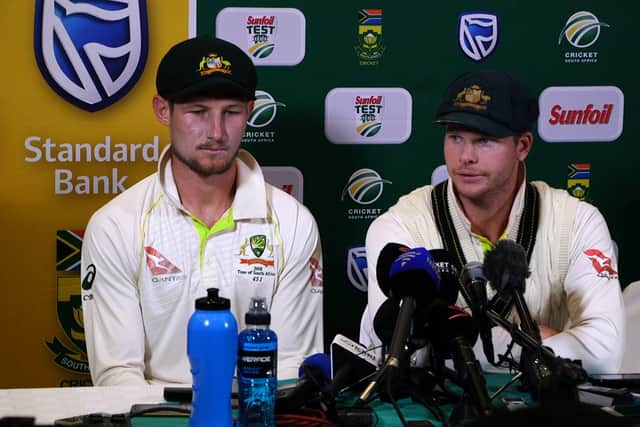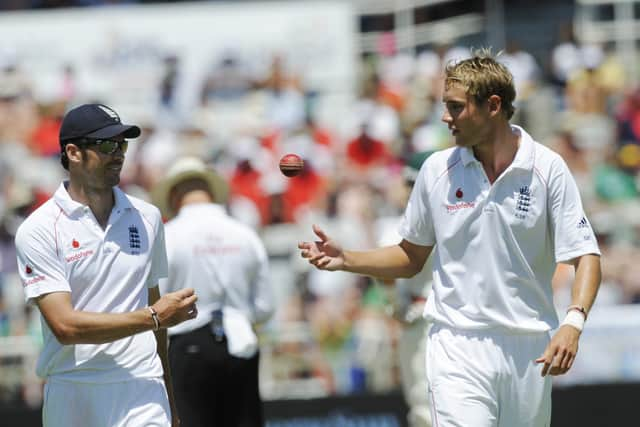Netherlands bowler Vivian Kingma receives ban for ball-tampering during ODI cricket match with Afghanistan
This article contains affiliate links. We may earn a small commission on items purchased through this article, but that does not affect our editorial judgement.


Vivian Kingma, the Netherlands fast bowler, has been banned for four ODIs/T20Is for ball-tampering.
The Netherlands have been playing an ODI series against Afghanistan and the incident occured in the third match, 31 overs in.
Advertisement
Hide AdAdvertisement
Hide AdThe Dutch team ultimately lost the match by 75 runs in Doha on Tuesday 25 January 2022.
The 27-year-old was found to have breached article 2.14 of the ICC Code of Conduct for players and player support personnel, relating to “changing the condition of the ball in breach of clause 41.3 of the ICC Standard Test Match, ODI and T20I Playing Conditions”.
The ICC release stated that Kingma ‘changed the condition of the ball by scratching it with his nails.’
It was Kingma’s first offence in a 24-month period and the ICC said he had admitted the offence and accepted the sanction proposed by the expert panel.There would be no need for a formal hearing.
Advertisement
Hide AdAdvertisement
Hide Ad

Kingma not only received the four suspension points, but five demerit points were also added to the disciplinary record of the fast bowler.
The ICC statement said: “As each suspension point equates to a ban from one ODI or T20I, whatever comes first for the player or player support personnel, Kingma will miss the next four matches that his team plays in either format (T20/ODI).”
Who is Vivian Kingma?
Born in The Hague, Kingma first played for the Netherlands in 2014 during an ODI against Canada.
He played for his country in the 2014 ICC World Twenty20 tournament and was selected for the 2015 ICC World Twenty20 qualifier but was later replaced by Roelof van der Merwe.
Advertisement
Hide AdAdvertisement
Hide AdThe bowler’s T20I debut came during a match against Scotland in 2016.
Kingma took a hat-trick and his first five-wicket haul in a List A cricket match while playing against Namibia in the 2015-17 ICC World Cricket League Championship.
The fast medium bowler has 12 ODI wickets; eight T20 and 24 First Class wickets to his name.
What is ball-tampering?
Ball tampering is where the fielding team illegally alters the condition of the ball. The primary aim of this is to interfere with the aerodynamics of the ball to aid swing bowling.
Advertisement
Hide AdAdvertisement
Hide AdVery often, bowlers will rub one side of the ball against their clothing in order to create a shinier side to aid with the swing. Cricketers also used to use their saliva for the same purpose but since COVID-19, this has been restricted and bowlers are now only allowed to use the sweat they have produced rather than saliva.
What are some other incidents of ball-tampering?
Australia
The most famous case of ball-tampering occurred during a test match between South Africa and Australia which resulted in three Australians being temporarily banned and two losing their captaincy and vice-captaincy.
In 2018, Cameron Bancroft was seen to have rubbed the ball with a yellow object during day three of the Third Test against South Africa.
The batter claimed that this object was a short length of yellow adhesive tape to which dirt and grit had adhered, forming a more abrasive surface.
Advertisement
Hide AdAdvertisement
Hide Ad

Four days later, Cricket Australia confirmed that it was actually sandpaper.
At the end of the day’s play, the then captain Steve Smith and Bancroft attended a press conference where the young batsman confessed to tampering with the ball, while Smith said that the sandpaper had been planned by an unnamed ‘leadership group’ during the lunch break.
Smith and his vice-captain, David Warner, stood down from leadership the morning after but still continued to play with wicket-keeper Tim Paine taking over the captaincy role.
The ICC banned Smith for one Test match as well as fining him his entire match fee, while Bancroft was fined 75% of his fee.
Advertisement
Hide AdAdvertisement
Hide AdThere was such a public outcry, particularly in Australia, and the Australian Sports Commission, the Prime Minister Malcolm Turnball and many other famous international cricketers universally condemned the Aussies for their actions.
Smith, Warner and Bancroft were charged with bringing the game into disrepute, suspended and then sent home.
Smith and Warner received a 12 month ban from all international and domestic cricket while Bancroft’s ban was nine months long.
Pakistan
The first player to receive a suspension for ball-tampering was the Pakistani legend Waqar Younis who was fined 50% of his match fee after tampering with the ball in 2000.
England
Advertisement
Hide AdAdvertisement
Hide AdThe most serious incident pertaining to ball-tampering within the English camp came in 2010. Stuart Broad and James Anderson were accused of tampering as they stopped the ball with the spikes of their boots in the third test match against South Africa.


Broad claimed that the 40℃ had made him lazy so he was just failing to stop the ball properly.
No charges were formally requested by South Africa, despite the allegations made at a press conference, but the former England Captain Nasser Hussein said: “Stuart Broad and James Anderson were wrong to behave in the manner they did and I’ve no doubt that if a player from another country did the same we’d have said they were cheating.”
A message from the editor:
Thank you for reading. NationalWorld is a new national news brand, produced by a team of journalists, editors, video producers and designers who live and work across the UK. Find out more about who’s who in the team, and our editorial values. We want to start a community among our readers, so please follow us on Facebook, Twitter and Instagram, and keep the conversation going. You can also sign up to our newsletters and get a curated selection of our best reads to your inbox every day
Comment Guidelines
National World encourages reader discussion on our stories. User feedback, insights and back-and-forth exchanges add a rich layer of context to reporting. Please review our Community Guidelines before commenting.
